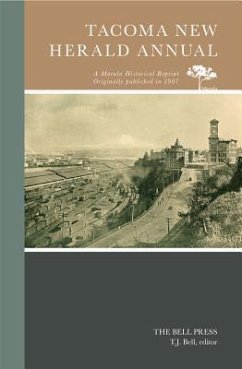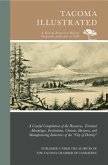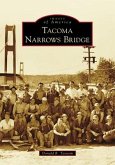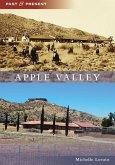Dear Sir--I have found the place that can become the Greatest City of the World. Hold on there! Laugh if you will after you have read this. The biggest folly is to fool yourself. The best authorities agree that as to climatic conditions, life-supporting soil and wealth-producing lands and waters, the Pacific Ocean and lands on each shore half way across the Continent to the Atlantic are more than twice as great and good as those in, and on, the Atlantic half-way across to the Pacific. . . . No part of America is more blessed by grand watersheds than the North Pacific Coast, and no city gets greater benefit from them than Tacoma. This State of Washington, with the beauty of Switzerland and the fertility of ancient Egypt, with its vast and varied resources, with its rich irrigable eastern half and its western half enjoying a semi-tropical climate, owing to the Japan current, will, when the world's population becomes adjusted, support twenty times its present population in comfort; and, if it had thirty times its present population, it would be more self-sustaining than the original thirteen American States are now. This will be conceded when the life-supporting resources of, and external items that contribute to, the respective districts are weighed and balanced. . . . Donald Fletcher, Nov. 1, 1906
Hinweis: Dieser Artikel kann nur an eine deutsche Lieferadresse ausgeliefert werden.
Hinweis: Dieser Artikel kann nur an eine deutsche Lieferadresse ausgeliefert werden.








